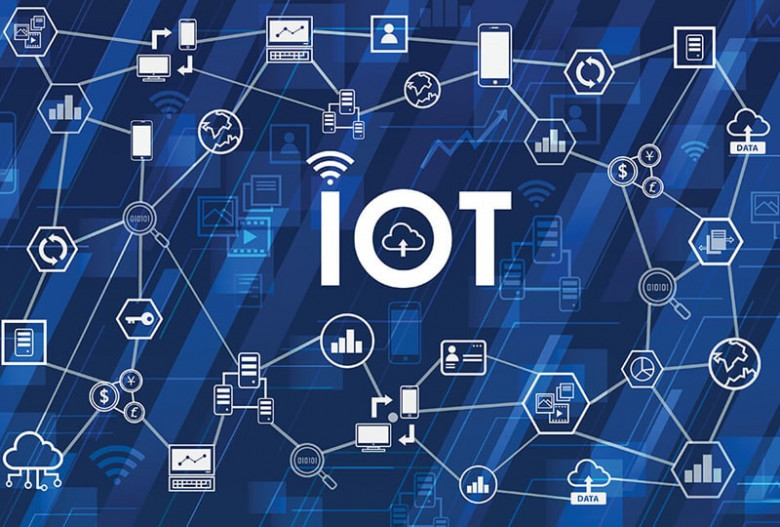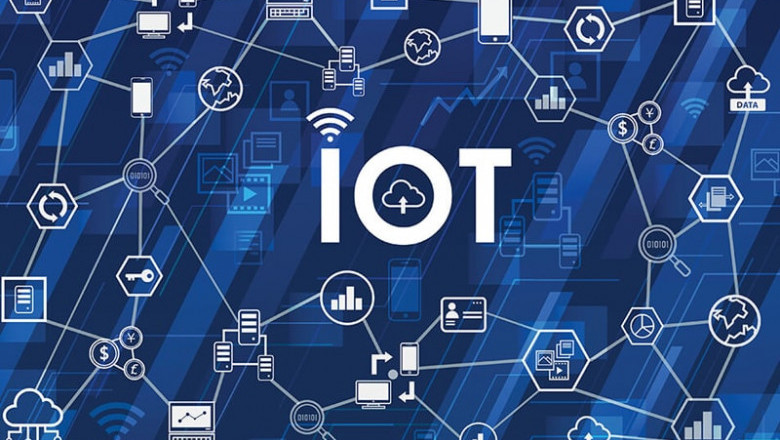views
Introduction
In today’s fast-paced, interconnected world, the Internet of Things (IoT) has emerged as a powerful enabler of innovation, especially for startups. IoT refers to the network of physical devices embedded with sensors, software, and other technologies that connect and exchange data with other devices and systems over the Internet. For startups, IoT offers immense potential to create smarter solutions across industries like healthcare, agriculture, logistics, retail, and manufacturing.
Startups are uniquely positioned to harness the power of IoT because they are agile, open to experimentation, and driven by the need to solve real-world problems with limited resources. This article explores how startups are leveraging IoT to build intelligent, efficient, and scalable solutions that are disrupting traditional business models and enhancing user experiences.
IoT and the Startup Ecosystem
Startups are increasingly becoming central players in the IoT ecosystem. Unlike large enterprises, startups can quickly prototype, test, and refine their products, which allows them to innovate rapidly. They are also more willing to explore niche markets and address specific customer pain points using IoT-enabled devices.
Moreover, with the growing availability of affordable sensors, cloud platforms, and edge computing, startups can now launch IoT solutions without massive upfront investments. This democratization of technology has led to a proliferation of smart devices and systems in various sectors, enabling startups to compete with more established players.
Enhancing Operational Efficiency
One of the key ways startups are using IoT is to enhance operational efficiency. By embedding sensors in machinery, equipment, or vehicles, startups can monitor real-time performance data and anticipate issues before they become critical. Predictive maintenance, for example, helps avoid costly downtime and extends the life of assets.
In sectors like logistics and supply chain, IoT enables real-time tracking of shipments, which improves inventory management and delivery accuracy. Startups like Shipwell and FourKites use IoT to provide end-to-end visibility in supply chains, enhancing decision-making and reducing costs for their clients.
Enabling Smart Products and Services
IoT has given rise to a new generation of smart products and services. From connected home devices to wearable health monitors, startups are using IoT to create products that adapt to user needs and provide continuous value. These devices collect and analyze data to deliver personalized experiences and improve outcomes.
For example, startups in the healthtech space are developing wearable devices that track vital signs and provide real-time feedback to users and healthcare providers. These innovations not only empower individuals to take charge of their health but also support preventive care and remote patient monitoring.
Revolutionizing Agriculture
Agritech startups are leveraging IoT to transform traditional farming practices. By deploying sensors in fields, greenhouses, or livestock pens, startups can collect data on soil moisture, temperature, humidity, and animal health. This data helps farmers make informed decisions about irrigation, fertilization, and harvesting.
Precision agriculture enabled by IoT is not only improving crop yields but also reducing resource consumption. Startups like CropX and Arable provide smart farming solutions that help optimize inputs and boost productivity, especially in regions facing environmental and resource challenges.
Smart Cities and Urban Innovation
IoT is playing a pivotal role in shaping smart cities, and startups are at the forefront of this transformation. From intelligent traffic management to smart waste disposal systems, startups are developing IoT-based solutions that enhance urban living. By integrating sensors and connectivity into city infrastructure, they help local governments monitor resources, manage utilities, and improve safety.
Startups like UrbanThings and SmartBin are creating systems that optimize public transport usage and waste collection routes using real-time data. These innovations not only reduce operational costs but also lower carbon emissions and improve the quality of life for citizens.
Energy Efficiency and Environmental Monitoring
Sustainability is a growing concern for businesses and consumers alike. Startups are using IoT to promote energy efficiency and environmental monitoring. Smart meters, for example, allow users to track electricity usage and identify areas where energy consumption can be reduced.
IoT-enabled environmental sensors can detect pollutants, monitor air and water quality, and even track changes in weather patterns. Startups like Plume Labs and Aclima are using IoT technology to help communities make informed decisions about health and sustainability. These solutions also help businesses comply with environmental regulations and reduce their ecological footprint.
Improving Customer Experience
IoT enables startups to gain deeper insights into customer behavior by tracking how users interact with products or services. This real-time feedback loop allows startups to personalize offerings, anticipate customer needs, and continuously refine their solutions.
Retail startups, for instance, use IoT-powered beacons and smart shelves to enhance in-store experiences. These tools can suggest personalized promotions or automate stock replenishment. In the hospitality sector, startups are deploying smart room systems that allow guests to control lighting, temperature, and entertainment with their smartphones.
Overcoming Challenges: Security and Scalability
Despite its vast potential, implementing IoT comes with challenges—especially for startups with limited resources. Security remains a major concern, as connected devices can become entry points for cyberattacks. Ensuring that IoT systems are secure, regularly updated, and compliant with data protection regulations is critical.
Scalability is another challenge. Startups must plan their infrastructure to support the increasing volume of devices and data. Cloud computing, edge processing, and robust API architectures are essential components of scalable IoT ecosystems. Collaboration with cloud service providers and adherence to industry standards can help startups build resilient solutions.
Funding and Market Access
Funding remains a key hurdle for IoT startups. Developing hardware, securing manufacturing partners, and sustaining long development cycles require substantial capital. However, venture capital firms and incubators are increasingly supporting startups in the IoT space, attracted by the growing market demand and the technology’s transformative potential.
Participating in accelerator programs, government innovation schemes, and industry partnerships can provide startups with access to both funding and markets. Building strong investor relationships and demonstrating product-market fit early can significantly improve a startup’s chances of scaling successfully.
The Future of IoT Startups
The evolution of IoT continues to open up new possibilities for startups. As 5G networks become more widespread, data transmission will become faster and more reliable, enabling more sophisticated real-time IoT applications. This will allow startups to innovate in areas such as autonomous vehicles, augmented reality, and telemedicine with far greater precision and lower latency.
Edge computing is also set to redefine IoT’s potential. By processing data closer to the source, startups can reduce bandwidth costs and latency while increasing responsiveness. This is particularly valuable in critical environments like industrial automation or healthcare, where instant decision-making is essential.
As consumers and businesses become more reliant on connected devices, expectations for seamless, secure, and intelligent interactions will rise. Startups that can meet these expectations—by combining IoT with AI, big data, and cloud computing—will be well-positioned to lead in the coming years.
Enhancing Customer Experience with IoT
Startups are using IoT to personalize and enhance the customer journey. From smart home assistants that adapt to user habits to wearable devices offering real-time health feedback, startups can collect actionable insights and deliver personalized recommendations, improving engagement and satisfaction.
Supporting Remote Monitoring and Maintenance
IoT solutions allow startups to remotely monitor equipment, infrastructure, or environmental conditions. This is crucial for sectors like energy, logistics, and real estate, where predictive maintenance and real-time diagnostics reduce downtime and operational costs, leading to increased reliability and customer trust.
Encouraging Data-Driven Business Models
With IoT devices constantly gathering data, startups can develop data-driven business models. Whether it's offering usage-based pricing, real-time analytics services, or AI-enhanced features, IoT enables startups to innovate how they deliver value and monetize their services effectively.
Conclusion
IoT has become a powerful enabler for startups, helping them create smarter, more efficient, and more responsive solutions across industries. From healthcare and agriculture to manufacturing and smart cities, startups are leveraging IoT to solve real-world problems and redefine how products and services are delivered.
However, success in this space requires more than just innovative ideas. Startups must navigate challenges around security, scalability, funding, and user adoption. Those who invest in robust technology infrastructure, prioritize data privacy, and remain agile in their approach are most likely to succeed.
As the IoT landscape matures, startups will continue to be a driving force behind the digital transformation of our world—bringing intelligence and connectivity to every aspect of our lives.















Comments
0 comment